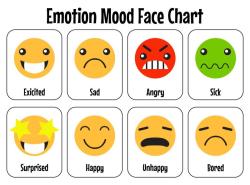What is the job description of a clinical psychologist?
A clinical psychologist is a mental health professional who assesses, diagnoses, and provides therapeutic interventions for individuals dealing with psychological and emotional issues. Their job description encompasses a wide range of roles and responsibilities. Here is a comprehensive overview of the job description of a clinical psychologist:
1. Assessment and Diagnosis:
- Conduct psychological assessments to evaluate the mental health and emotional well-being of clients.
- Diagnose mental health conditions and disorders based on assessment findings and clinical judgment.
2. Treatment Planning:
- Develop individualized treatment plans based on clients' specific needs, diagnoses, and goals.
- Select and implement evidence-based therapeutic approaches, such as cognitive-behavioral therapy (CBT), psychotherapy, or other modalities.
3. Therapy and Counseling:
- Provide psychotherapy and counseling to individuals, couples, families, or groups to help clients address and manage mental health challenges.
- Assist clients in understanding and coping with emotional and psychological issues.
4. Crisis Intervention:
- Offer crisis intervention and support to clients in acute distress or during emergencies, such as suicidal ideation or trauma.
5. Behavioral Assessment and Modification:
- Conduct behavioral assessments to understand and modify maladaptive behaviors.
- Implement behavior modification strategies to help clients develop healthier coping mechanisms.
6. Research and Assessment Tools:
- Stay updated on the latest research and assessment tools in the field of psychology.
- Use standardized psychological tests and assessment instruments to evaluate clients' mental health.
7. Record Keeping and Documentation:
- Maintain accurate and confidential client records, including assessment results, treatment plans, and progress notes.
- Ensure compliance with legal and ethical standards for record keeping.
8. Collaboration:
- Collaborate with other mental health professionals, such as psychiatrists, social workers, and counselors, to provide holistic care to clients.
- Work with medical professionals when necessary to address the physical aspects of mental health.
9. Education and Advocacy:
- Educate clients about mental health issues, treatment options, and strategies for self-care.
- Advocate for clients' rights and mental health awareness within the community.
10. Supervision and Training:- Provide supervision and training to graduate students, interns, or junior psychologists.- Stay current with continuing education to maintain licensure and expertise.
11. Ethical Considerations:- Adhere to professional ethics and legal regulations in clinical practice, including maintaining client confidentiality and informed consent.
12. Research and Publication:- Engage in research activities and contribute to the field of psychology through publications, presentations, or academic work.
13. Self-Care:- Practice self-care to prevent burnout and maintain personal well-being.
Clinical psychologists work in various settings, including private practice, hospitals, mental health clinics, schools, universities, and government agencies. They assist individuals dealing with a wide range of issues, such as anxiety, depression, trauma, addiction, eating disorders, and relationship problems. Clinical psychologists play a vital role in helping clients achieve mental and emotional well-being through assessment, therapy, and support.
What is the job description of a clinical psychologist?
A clinical psychologist is a mental health professional who assesses, diagnoses, and treats individuals with mental and emotional disorders. They work with people of all ages, from children to adults, and from all walks of life. Clinical psychologists use a variety of therapeutic approaches to help their clients, including cognitive-behavioral therapy (CBT), psychodynamic therapy, and interpersonal therapy.
How do clinical psychologists help individuals with mental health challenges?
Clinical psychologists help individuals with mental health challenges in a number of ways. They can help clients to:
- Understand their mental illness and how it is impacting their life
- Develop coping mechanisms for managing their symptoms
- Learn new skills to improve their relationships and social interactions
- Set and achieve personal goals
- Live a full and meaningful life
Can you explain the various roles and responsibilities of clinical psychologists?
The roles and responsibilities of clinical psychologists can vary depending on their work setting. However, some common roles and responsibilities include:
- Conducting psychological assessments and diagnosing mental disorders
- Developing and implementing treatment plans
- Providing individual, group, and family therapy
- Conducting research on mental health and mental health interventions
- Consulting with other mental health professionals and physicians
- Teaching and training other mental health professionals
What education and training are required to become a clinical psychologist?
To become a clinical psychologist, you must earn a doctoral degree in clinical psychology from an accredited university. Doctoral programs in clinical psychology typically take five to seven years to complete.
In addition to completing a doctoral degree, you must also complete a supervised internship and postdoctoral residency. The internship and residency provide you with the opportunity to gain practical experience working with clients under the supervision of licensed psychologists.
How to pursue a career in clinical psychology and make a difference in people's lives?
If you are interested in pursuing a career in clinical psychology, there are a few things you can do:
- Earn a bachelor's degree in psychology or a related field.
- Gain experience working with people with mental health conditions by volunteering or working as a mental health aide.
- Apply to doctoral programs in clinical psychology.
- Complete a supervised internship and postdoctoral residency.
- Obtain a license to practice psychology in your state.
Once you have become a licensed clinical psychologist, you can work in a variety of settings, including private practice, hospitals, clinics, schools, and government agencies. You can also choose to specialize in a particular area of clinical psychology, such as child psychology, geriatric psychology, or forensic psychology.
A career in clinical psychology can be very rewarding. Clinical psychologists have the opportunity to help people overcome their mental health challenges and live happier and healthier lives.
Here are some additional tips for pursuing a career in clinical psychology:
- Network with other clinical psychologists and mental health professionals.
- Attend professional conferences and workshops.
- Stay up-to-date on the latest research in mental health and mental health interventions.
- Get involved in your community by volunteering your services or speaking to groups about mental health topics.
With hard work and dedication, you can make a difference in the lives of others as a clinical psychologist.












